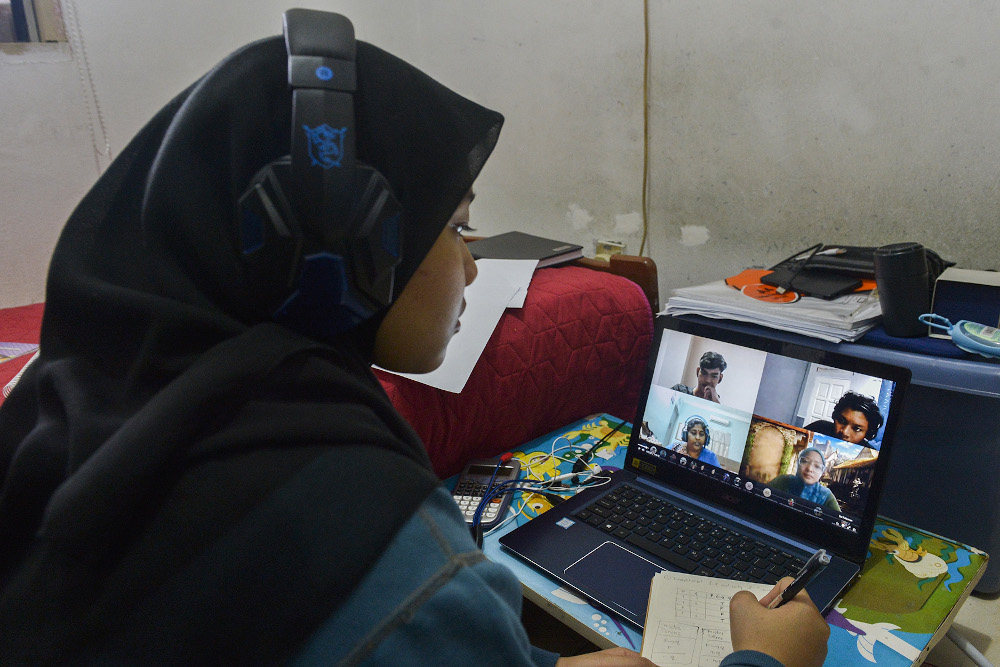
A view of the Sarawak State Legislative Assembly Complex. ― Borneo Post pic
KUCHING, May 8 — Rise of Sarawak Efforts (ROSE) calls on the Sarawak Premier and other state government leaders to publicly state their stance on the anti-hopping law.
“The Sarawak electorate has a right to know the intention of the state government towards the federal government’s desire to amend the Eighth Schedule of the Federal Constitution (Provisions to be inserted in the State Constitutions) to standardise the anti-hopping provisions between the states of the Federation.
“Or is the state government’s silence an indication that they object to the adoption of the same law at state level? If so, what is the state government’s basis or grounds for doing so? The public has a right to know. The public also has a right to know what improved form of anti-hopping law the state government prefers,” it said in a statement yesterday.
ROSE noted that the 23 MPs of Gabungan Parti Sarawak (GPS) in the Dewan Rakyat, along with the rest, are expected to debate and vote on the Bill in due course.
“Disappointingly, the only view Sarawak Premier Datuk Patinggi Tan Sri Abang Johari Tun Openg has expressed is that Sarawak’s Tuan Yang Terutama (TYT) needs to give his consent before the anti-hopping law is enforced.
To date, the Premier has not commented substantively on what form the law should take. Nor have other GPS leaders. In other words, the 23 GPS MPs have no guidance about how to debate the issue in Parliament.
“Our Sarawak government prides itself that our state is better run than those in the Peninsula. Now is the time for our state government to show leadership in Malaysia on this anti-hopping constitutional amendment that meets the aspirations of the rakyat for more democratic politics,” it said.
ROSE is of the view that the anti-hopping provisions to be applied to state assemblymen must be one that is stronger than the present Article 17(7)(a).
Article 17(7)(a) reads: “Any person who has voluntarily given an undertaking to the Speaker in writing that he will not resign his membership from the political party for which he stood or to which he belonged when he is elected to the Dewan Undangan Negeri, shall, if he resigns from the political party after being elected, be disqualified in the interest of public integrity and morality from continuing to be a member of the Dewan Undangan Negeri with effect from the date he resigned from the political party”.
“This is an impotent and weak law to deter party-hopping as the obligation imposed on the ADUNs in the said provision is a voluntary one,” added the non-partisan, civil action group.
ROSE welcomes the formation of the Special Parliamentary Select Committee (PSSC) by the Dewan Rakyat on April 11, which is tasked to deliberate, formulate and fine-tune the design of an Anti-Hopping Law that effectively curbs the menace of party-hopping by MPs and ADUNs.
“The rakyat want the resultant Bill to be one that effectively deters defections and restores democratic political stability. This will ensure that voters’ mandates are respected by both lawmakers and political parties alike.
“Ultimately it should be a law that when passed restores confidence in our parliamentary democracy and elections by the general public including an estimated 5.8 million new voters when the 15th general election (GE15) comes around,” it said.
ROSE is of the opinion that lawmakers must by law vacate their seats when they leave their political party; or join a political party after being elected as an independent; or are expelled by their party.
ROSE also believes that all those who vacate or lose their seats as a consequence of this anti-hopping law must however be allowed to recontest in the subsequent by-election either as an independent or under another party ticket.
“In this way, if there is any change in affiliation by the elected representative post election, the voters get the power to decide who they believe will best represent their aspirations.
“Equally important, states should also adhere to the same anti-hopping law by amending their respective state constitutions,” it said. — Borneo Post








